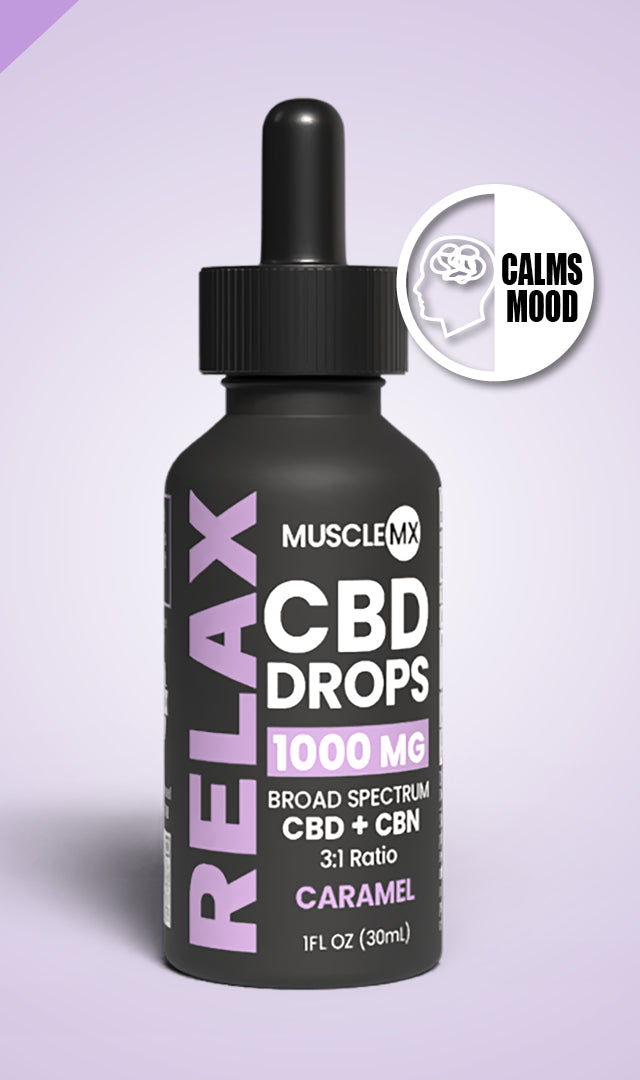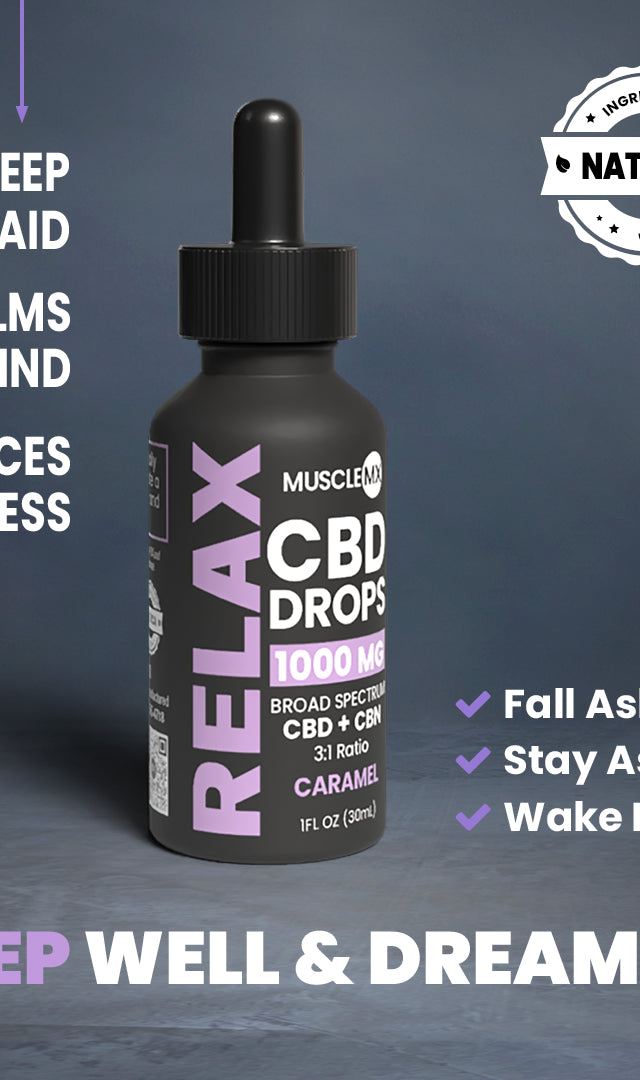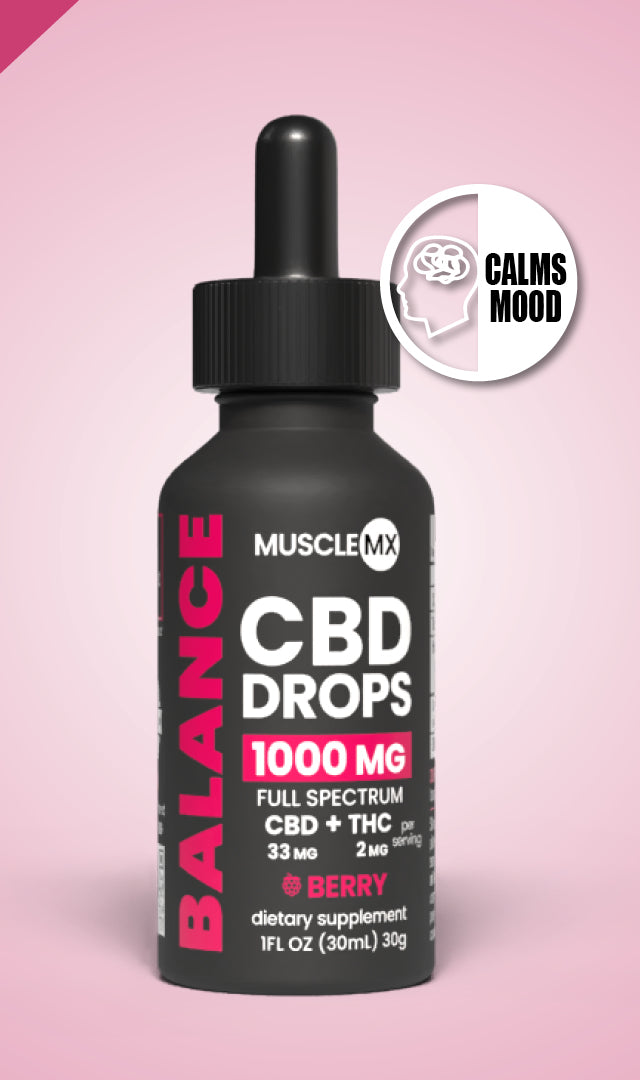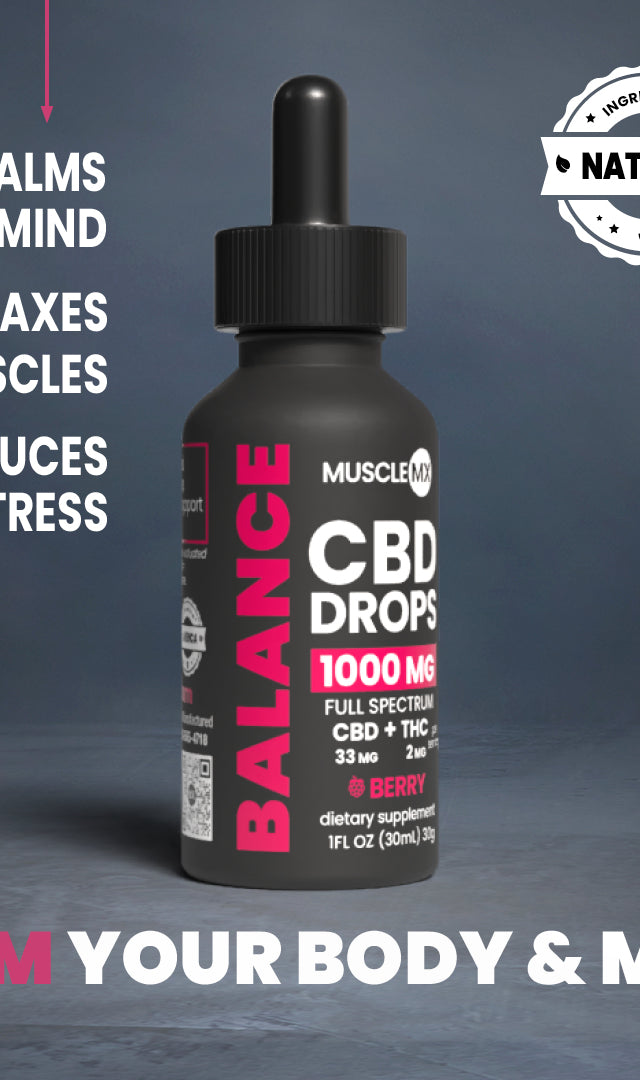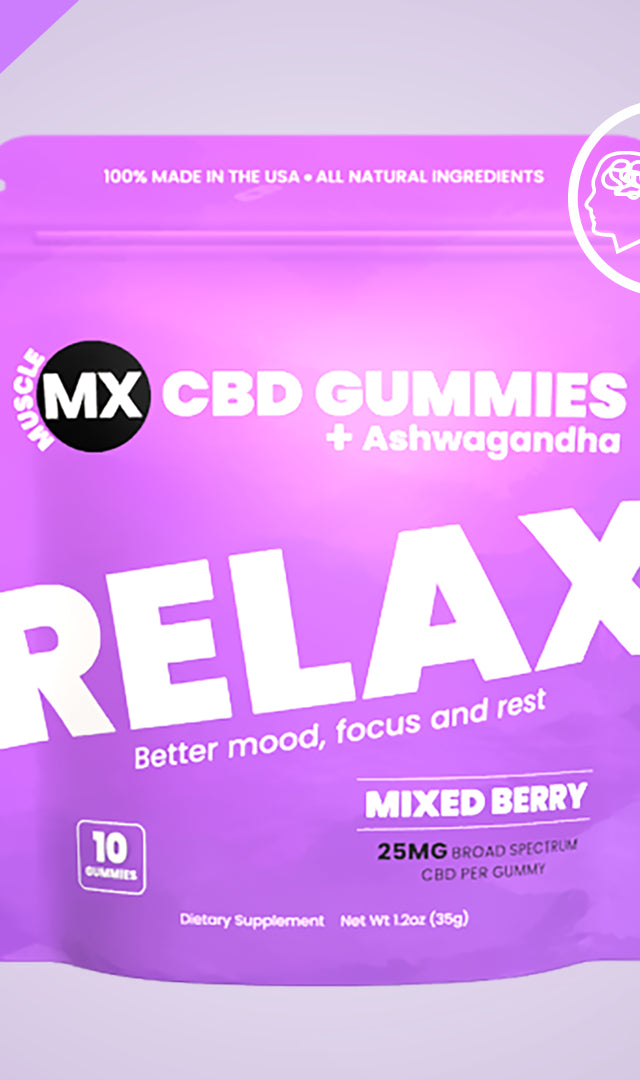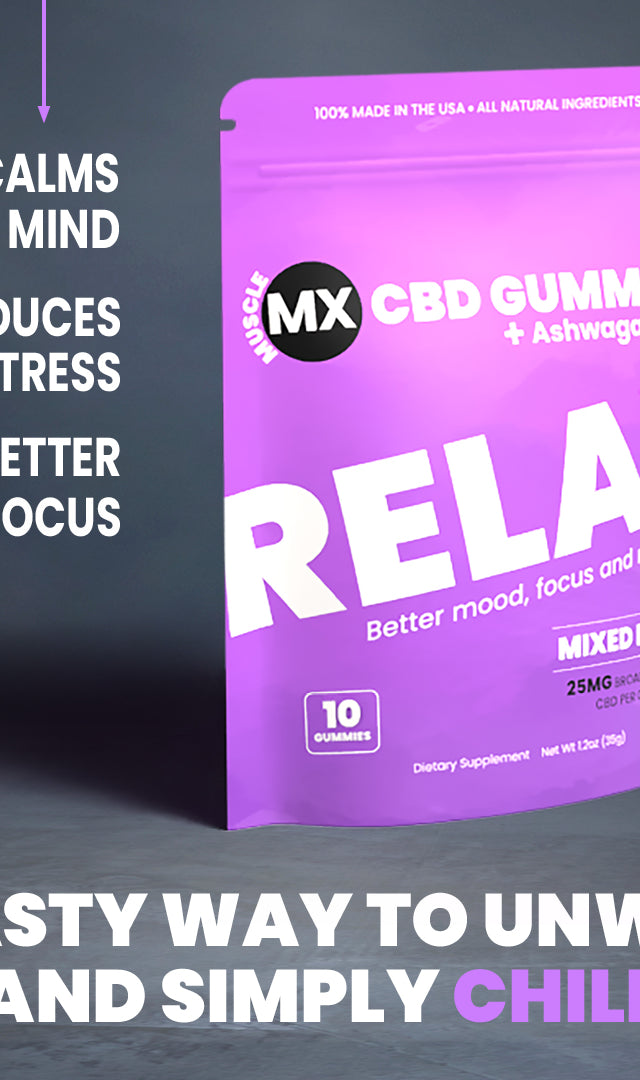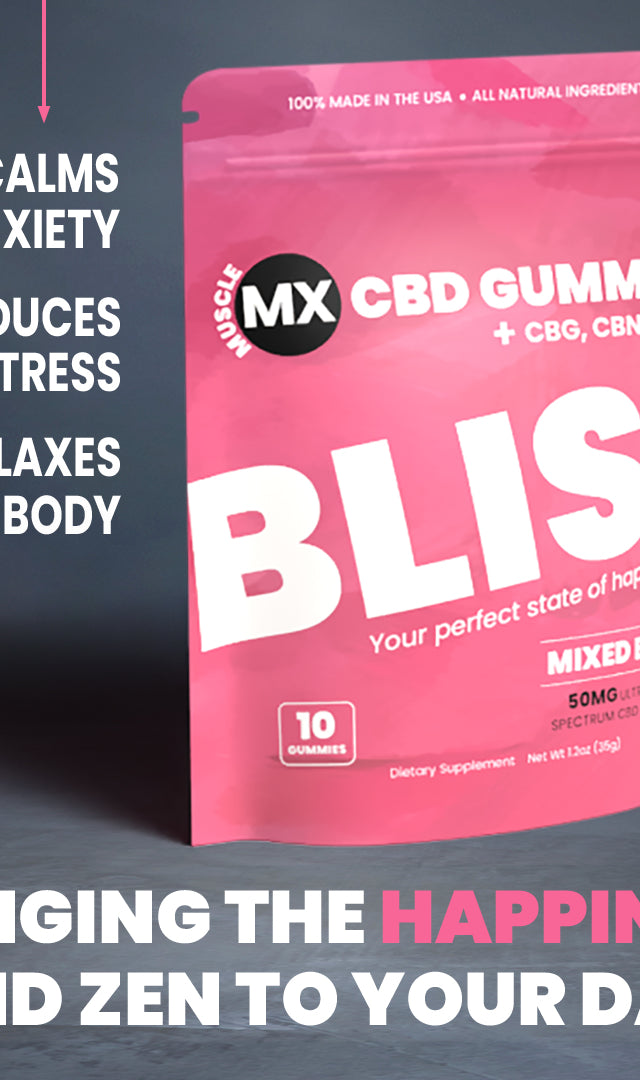CBN vs CBD for Sleep: Which Actually Works?
Sleep troubles — they affect up to two-thirds of adults in the U.S., turning what should be restful nights into frustrating hours of tossing and turning. If you're among those searching for better sleep, you've likely come across CBN and CBD as potential natural solutions. The growing popularity of these cannabis-derived compounds has created quite a bit of confusion about which one might actually help you get some rest.
CBD has become well-known for potentially improving sleep quality and easing anxiety, backed by numerous scientific studies. CBN, meanwhile, has earned the nickname "the sleepy cannabinoid" — though the scientific evidence supporting this claim is still developing. One study showed that CBN alone had little effect on sleepiness, but might work better when paired with THC.
What exactly sets these two cannabinoids apart? CBN is mildly psychoactive (about 25% as potent as THC) and actually forms when THC breaks down. CBD, on the other hand, is completely non-psychoactive and has gained recognition for a wide range of potential wellness benefits beyond just sleep improvement.
Let's explore the evidence behind both CBN and CBD for sleep, how they work in your body, and which might be better suited for your specific sleep challenges. We'll also cover important considerations like possible side effects, how to determine the right dose, and what you should know about the current lack of FDA regulation for most CBN products.
How CBN and CBD Work in Your Body
You might be wondering how these two cannabinoids actually interact with your body to potentially help with sleep. Let's break down their origins and mechanisms to better understand how they differ.
Cannabinol (CBN) stands apart from most cannabinoids because it doesn't start out in the cannabis plant — it actually forms when THC breaks down through exposure to heat, light, and oxygen. This explains why older cannabis contains higher amounts of CBN. The aging process essentially transforms THC into this potentially sleep-supporting compound.
Cannabidiol (CBD), on the other hand, is one of the primary cannabinoids found naturally and abundantly in hemp plants. Unlike CBN, CBD is extracted directly from the plant without needing any degradation process.
Both cannabinoids come from Cannabis sativa, though hemp plants (containing ≤0.3% THC by dry weight) serve as the main legal source in the United States since the 2018 Farm Bill. CBD is just one of more than 100 cannabinoids identified in cannabis, though it's one of the most prominent alongside THC.
When these cannabinoids enter your body, they interact with your endocannabinoid system (ECS) in remarkably different ways. Your ECS is a complex network of receptors, enzymes, and molecules that helps regulate important functions like sleep, mood, pain perception, and appetite.
CBN binds directly to both CB1 and CB2 receptors in your body, though it attaches to CB1 receptors with about 10 times less strength than THC does. This explains why CBN has some mild psychoactive properties — about 25% as potent as THC — which might contribute to its potential sedative effects at higher doses, though much milder than THC's euphoric impact.
CBD takes a completely different approach. Rather than binding directly to receptors, CBD acts as a "reuptake inhibitor" that extends the natural lifecycle of your body's own endocannabinoids. It also functions as what scientists call an "allosteric modulator" — essentially fine-tuning how signals are processed at receptors, particularly CB1 receptors.
This fundamental difference in how they interact with your body explains why CBD is completely non-psychoactive (producing no mind-altering effects even at large doses) while CBN can cause mild psychoactive effects. The distinct ways these cannabinoids work with your endocannabinoid system may account for their different potential benefits for sleep.
Remember, understanding how these compounds work with your body's natural systems is key to figuring out which might better address your specific sleep challenges.
What Science Really Says About CBN and CBD for Sleep
Recent scientific studies have started to shed light on how CBN and CBD might affect sleep differently. If you're looking for evidence-based natural sleep solutions, understanding these differences is key to finding what might work for you.
CBN's Impact on Nighttime Awakenings
A significant 2022 double-blind randomized controlled trial discovered that 20 mg of CBN significantly reduced nighttime awakenings and overall sleep disturbance compared to placebo. Participants woke up about 0.5 fewer times per night and reported a 1.36-point lower score on the sleep disturbance scale. While this same study showed CBN didn't significantly improve overall sleep quality, researchers noted the results suggested "potentially meaningful" improvements.
How CBD Helps Through Anxiety Reduction
CBD seems to work differently, primarily helping sleep by addressing underlying anxiety. Research has shown that just 25mg of CBD daily improved sleep quality in adults with anxiety. A 2023 review found that taking 50 mg of CBD daily for 8 weeks notably enhanced sleep quality, particularly in younger adults without existing health conditions. These findings align with other studies where CBD users reported better general health perceptions alongside decreased anxiety and improved sleep.
Combining CBN and CBD: Not Better Together?
You might think combining these cannabinoids would create stronger sleep benefits, but research suggests otherwise. The 2022 clinical trial found that adding CBD to CBN "did not positively augment CBN treatment effects". None of the CBN+CBD combinations showed significant benefits over placebo for sleep quality, nighttime awakenings, or how quickly people fell asleep. These findings challenge earlier claims that these cannabinoids work better together.
What the Clinical Trials Show
The most convincing evidence comes from a trial with 293 participants testing various formulations against placebo. When comparing 20mg CBN alone, 20mg CBN+10mg CBD, 20mg CBN+20mg CBD, and 20mg CBN+100mg CBD, only the pure CBN formulation showed meaningful improvements. Researchers concluded that "the present study provides evidence to support the use of 20 mg CBN alone for the improvement of some sleep difficulties, including nighttime awakenings and overall sleep disturbance".
Remember, while these findings are promising, they represent just the beginning of our understanding of how these cannabinoids affect sleep. What works for one person might not work for another, and it's always best to consult with a healthcare provider before trying new supplements for sleep.
Side Effects and Safety Considerations
When considering any sleep aid, safety should be your top priority. Both CBN and CBD come with potential side effects and risks that deserve your attention before you decide to try either option.
CBN Side Effects: What We Know So Far
The research on CBN side effects is still developing, largely because CBN hasn't been studied as thoroughly as other cannabinoids. From what we do know, possible adverse effects include dizziness, drowsiness, dry mouth, and fatigue. Some users also report changes in appetite or upset stomach when taking CBN oil for sleep.
It's important to note that we still don't have enough research on how CBN might affect developing fetuses, interact with medications you may be taking, or impact those with pre-existing liver or kidney conditions. This knowledge gap means caution is warranted, especially for these groups.
CBD Side Effects: Fatigue, Appetite, and Liver Impact
CBD's safety profile is better understood thanks to more extensive clinical studies. Common side effects include drowsiness, diarrhea, reduced appetite, and dry mouth. More concerning are the potential effects on your liver — high daily doses of CBD have been linked to liver enzyme elevations.
This risk becomes even more significant when CBD is combined with certain medications. For instance, when taken with valproate, increased levels of aspartate aminotransferase and alanine aminotransferase have been observed. Even more alarming, an animal study found that taking CBD with acetaminophen resulted in 37.5% mortality associated with liver injury.
Drug Interactions and Long-Term Use Risks
Both cannabinoids can interfere with how your body processes medications. CBD inhibits several cytochrome P450 enzymes including CYP2C19 and CYP3A4, which could increase blood levels of many medications. Research shows that CBD may increase concentrations of cyclosporine, sildenafil, antihistamines, haloperidol, antiretrovirals, and certain statins.
You should be especially careful when combining CBD with blood thinners, heart medications, thyroid treatments, and seizure medications. Remember, even natural substances can interact with prescription drugs in potentially harmful ways.
Product Purity and Label Accuracy Concerns
Perhaps the most troubling issue is the widespread quality problems revealed by product testing. In one study of commercially available CBD products, a staggering 74% differed from their labeled CBD potency by at least 10%.
Even more concerning, researchers discovered heavy metals in 44 of 202 tested products, with lead being the most common contaminant. Residual solvents were found in 181 products, highlighting just how urgently we need better regulation in this industry.
These findings underscore why it's so important to choose products from reputable manufacturers who provide third-party lab testing results. What you think you're taking and what you're actually getting might be two very different things.
How to Choose Between CBD and CBN for Better Sleep
Finding the right sleep aid for your needs means understanding how different cannabinoids might address your specific sleep challenges. Both CBD and CBN offer potential benefits, but they work in different ways to support restful sleep.
When Might CBN Be Right for Your Sleep Issues?
CBN shows the most promise for sleep maintenance rather than helping you fall asleep initially. Research suggests CBN can significantly reduce those frustrating nighttime awakenings and overall sleep disturbances that leave you feeling tired the next day. Many users take CBN approximately 30-60 minutes before bedtime to help them stay asleep throughout the night.
CBN's mild psychoactive properties — about 25% as potent as THC — may provide a gentle sedative effect without strong intoxication. This makes it potentially helpful if you tend to wake frequently during the night rather than struggling to fall asleep in the first place.
When Might CBD Better Address Your Sleep Problems?
If anxiety or racing thoughts keep you awake at night, CBD might be the better option. CBD may help improve sleep by reducing cortisol levels and easing anxiety that interferes with falling asleep.
CBD offers a completely non-psychoactive option for those concerned about any mind-altering effects. This makes it appropriate even for daytime use without sedation. Some studies suggest CBD seems particularly effective for younger adults without underlying health conditions.
Understanding Dosage Challenges Without FDA Regulation
Finding your ideal dose can be challenging with both cannabinoids. For CBN, a typical starting dose ranges from 5-10mg taken before bed. However, depending on your individual response, you might need anywhere from 5mg to over 100mg.
As for CBD, research found that 50mg daily for 8 weeks improved sleep quality for many participants. Remember that, except for one CBD medication approved for epilepsy, neither cannabinoid has FDA regulation for sleep purposes. This lack of oversight means product quality varies dramatically — studies show 74% of CBD products deviate from labeled potency by at least 10%.
Why Talking to Your Doctor Is Important
Before trying either cannabinoid for sleep, consulting with a healthcare professional is essential. A doctor can help determine if underlying sleep disorders might require different approaches altogether. They can also review potential drug interactions with medications you're currently taking.
Your individual factors — including weight, metabolism, and specific sleep concerns — significantly impact ideal dosing. A personalized approach with medical guidance gives you the best chance of finding relief for your sleep issues.
The Bottom Line: Choosing the Right Cannabinoid for Your Sleep Needs
After diving into the science behind both CBD and CBN for sleep, one thing becomes clear — these cannabinoids work in fundamentally different ways to support rest. CBN connects directly with cannabinoid receptors and produces mild psychoactive effects, while CBD works more indirectly by modulating your endocannabinoid system without any psychoactivity.
What matters most is how these differences translate to real sleep benefits. CBN shows particular promise for reducing those frustrating middle-of-the-night awakenings and overall sleep disturbance. CBD, on the other hand, seems to improve sleep primarily by easing anxiety that might be keeping you awake.
Despite the potential benefits of both compounds, some significant challenges remain. The lack of FDA regulation is particularly concerning, with studies revealing substantial variations between what's on the product label and what's actually inside. Add to this the fact that both cannabinoids can cause side effects and interact with medications, and it becomes clear why consulting with a healthcare provider before trying either is so important.
Your choice between CBD and CBN should ultimately depend on your specific sleep challenges. If you find yourself waking frequently throughout the night, CBN's direct effects on sleep maintenance might be more helpful. If racing thoughts and anxiety are keeping you from falling asleep, CBD could be the better option.
Remember, the research on these cannabinoids continues to evolve, especially for CBN. While both offer potential paths to better sleep, it's essential to approach them with realistic expectations and appropriate caution. Your sleep wellness journey is uniquely yours, and finding the right solution may take some time and professional guidance.
FAQs
Q1. Is CBN more effective than CBD for improving sleep? While both cannabinoids show potential for sleep benefits, their effectiveness depends on the specific sleep issue. CBN may be more helpful for reducing nighttime awakenings and sleep disturbances, while CBD appears to improve sleep quality by reducing anxiety. Recent studies suggest that CBN alone (20mg dose) might be more effective for sleep maintenance than combinations with CBD.
Q2. What is the recommended dosage of CBN for sleep? A typical starting dose of CBN for sleep is between 5-10mg taken about 30-60 minutes before bedtime. However, effective doses can range from 5mg to over 100mg depending on individual factors. It's important to start low and gradually increase the dose while monitoring effects.
Q3. How do CBN and CBD differ in their effects on the body? CBN is mildly psychoactive (about 25% as potent as THC) and binds directly to cannabinoid receptors, potentially causing slight sedation. CBD, on the other hand, is non-psychoactive and works indirectly by modulating the endocannabinoid system. This difference explains their varied effects on sleep and other bodily functions.
Q4. What are the potential side effects of using CBN or CBD for sleep? Common side effects of CBN may include dizziness, drowsiness, dry mouth, and fatigue. CBD side effects can include drowsiness, diarrhea, reduced appetite, and dry mouth. Both cannabinoids may interact with certain medications, and CBD has been associated with potential liver effects at high doses. It's crucial to consult a healthcare provider before use.
Q5. How reliable are CBN and CBD products on the market? Product quality and reliability are significant concerns for both CBN and CBD products due to lack of FDA regulation. Studies have shown that many CBD products deviate from their labeled potency, and some contain contaminants like heavy metals. It's essential to choose products from reputable manufacturers that provide third-party lab testing results.
References
https://msutoday.msu.edu/news/2021/cbd-marijuana-and-hemp
https://pubmed.ncbi.nlm.nih.gov/37796540/
https://www.psypost.org/cannabis-compound-shows-initial-promise-in-reducing-sleep-disturbances/
https://www.medicalnewstoday.com/articles/cbd-for-insomnia
https://norml.org/news/2023/10/12/clinical-trial-nighttime-use-of-cannabinol-cbn-reduces-sleep-disturbances/
https://www.healthline.com/health/cbn-oil
https://www.sleepfoundation.org/sleep-aids/cbn-for-sleep
https://www.mayoclinic.org/healthy-lifestyle/consumer-health/expert-answers/is-cbd-safe-and-effective/faq-20446700










































